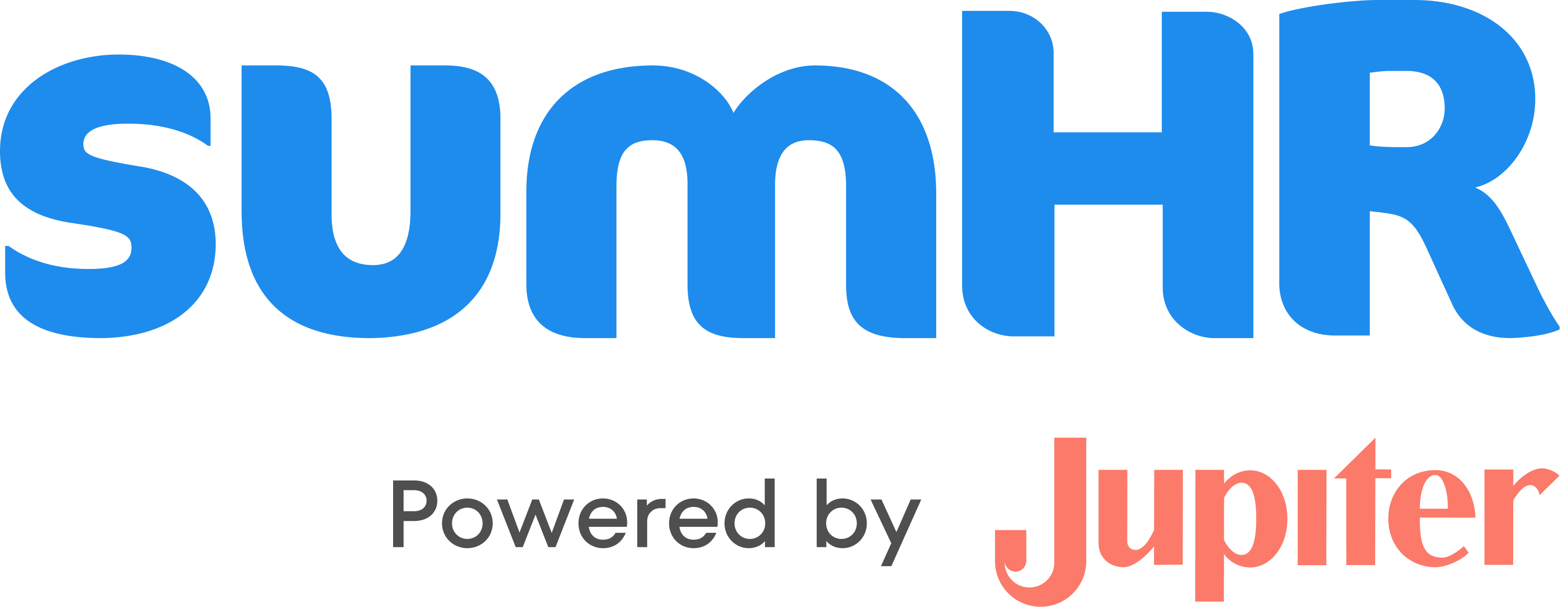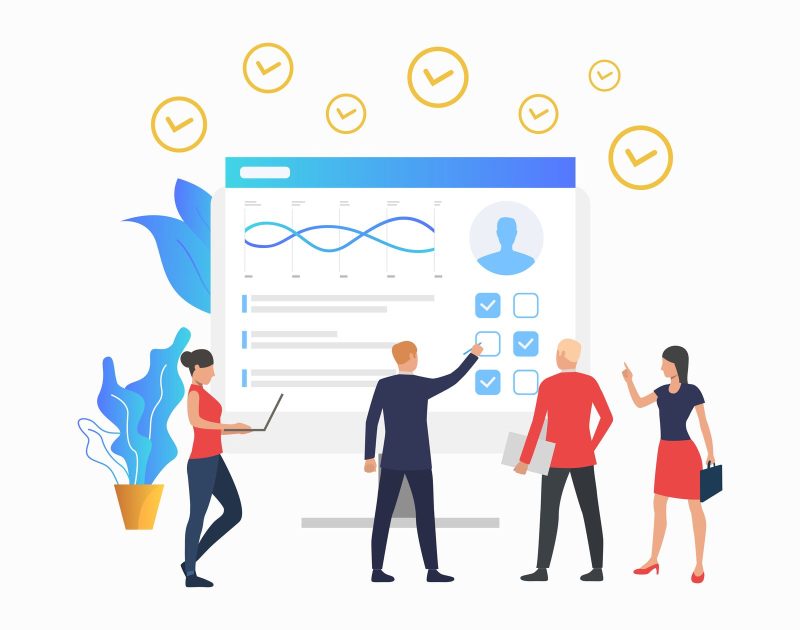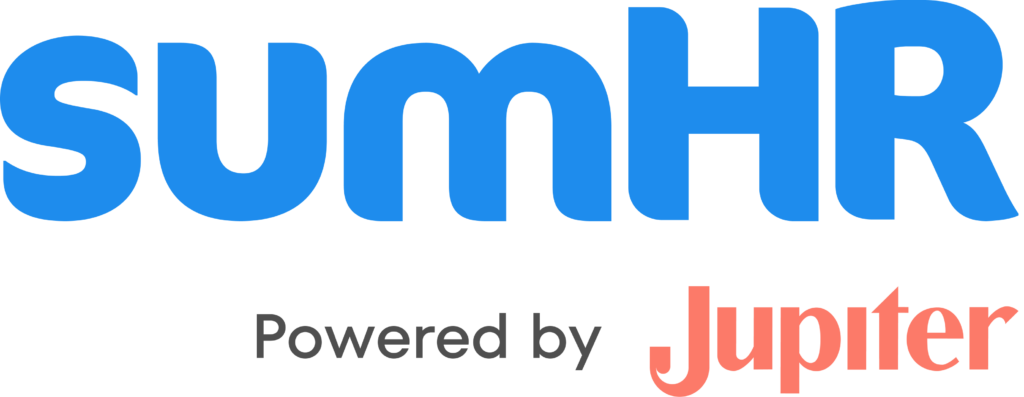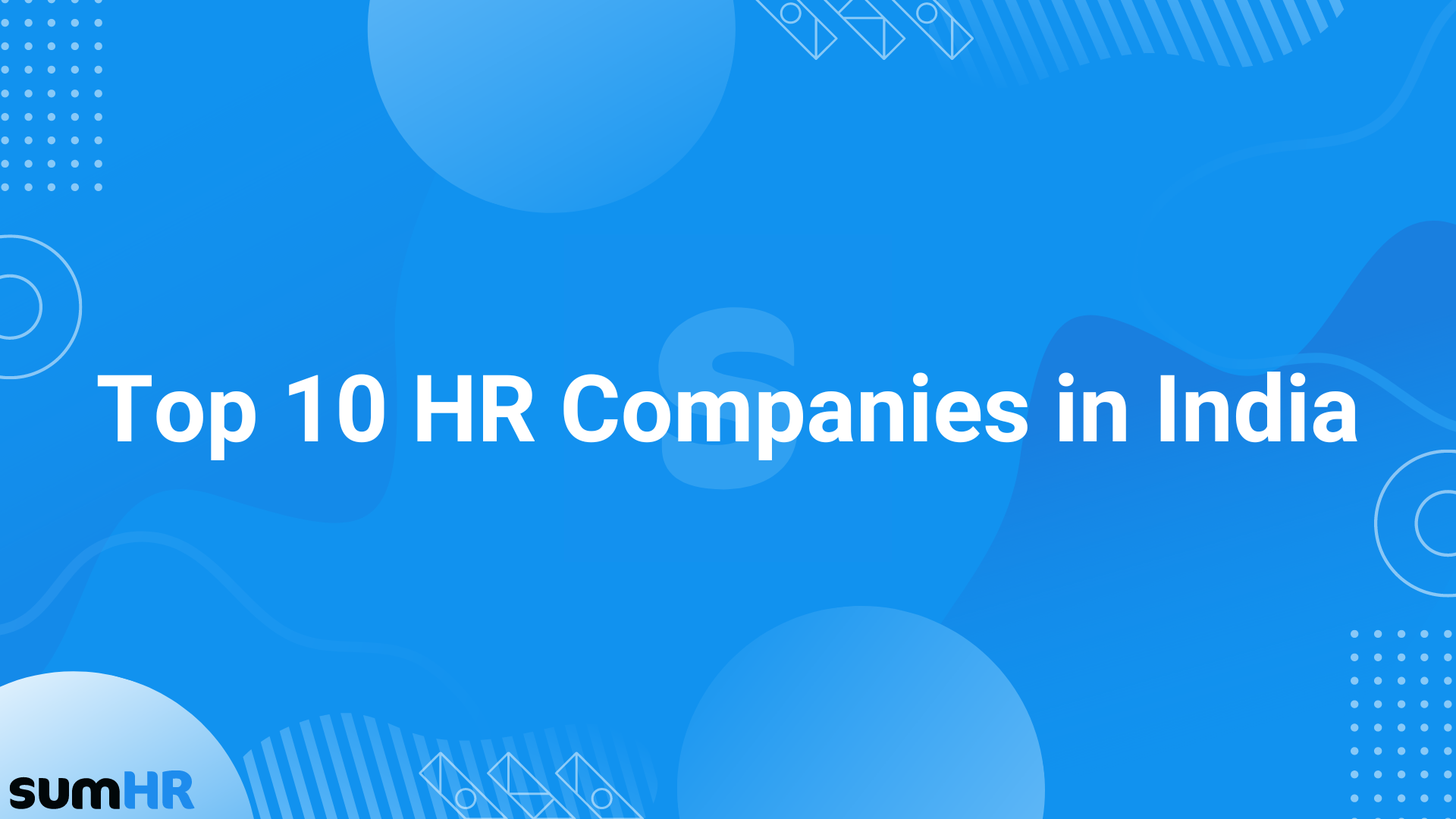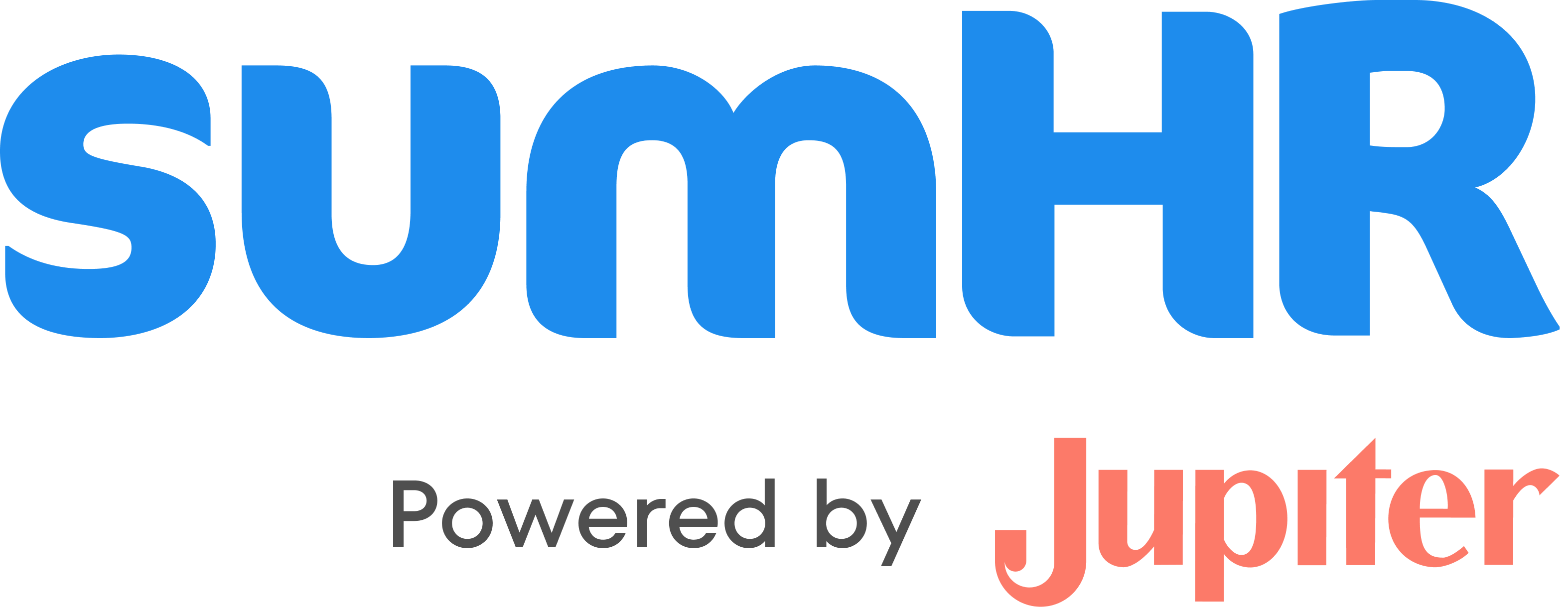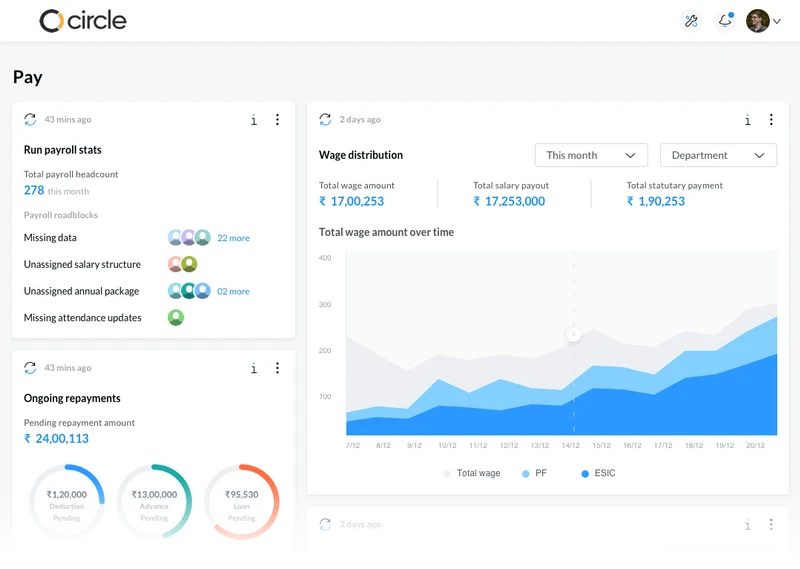HR Generalists develop and lead HR strategies and goals that promote a high-performance, employee-friendly culture. This article will give you a detailed insight on who is an HR Generalist, their roles and range of responsibilities, and a complete guide on how to work as an HR Generalist.
Before we take a deep dive into the specialized and important job role in Human Resources Management (HRM), let’s understand better what is Human Resources Management (HRM or HR).
2. A Quick Overview of Human Resources Management (HRM or HR)
Human Resources Management (HRM or HR) refers to the most crucial of all business departments in an organization that deals with managing the workforce or employees in the business organization. Human Resources are an integral function in any business, as are the employees who are an important asset of the organization. In simple words, Human Resources management involves everything related to managing human capital.
The five main functions of Human Resources are – recruitment, compensation, training, payroll, employee relations, and talent development.
The employment of Human Resources specialists is projected to grow 10 per cent from 2020 to 2030, about as fast as the average for all occupations as per the Occupational Outlook Handbook.
2.1. Today’s Human Resources Management
Keeping in pace with the dynamic business world, this vital business function has also shifted its modus operandi. Human Resources Management (HRM or HR) today encompasses far more than standard personnel and administrative responsibilities. Instead, the HR team is primarily concerned with strategically adding value to employees’ talents and skills.
2.2. Main functions of Human Resources Management
Human Resources Management is also responsible for ensuring that employee initiatives have an effective and measurable impact on the business. They work closely and in tandem with both the business leaders and the employees, regardless of their designations. The main functions of today’s Human Resources Departments are as follows:
- Work jointly with the business leaders keeping in mind the business objectives, vision, and mission.
- Work together with the employees for talent acquisition, skill management, and development.
- Human Resources Management has played a critical role in helping organizations establish organizational resilience and drive value throughout the pandemic. They have revamped their working model to provide improved employee experiences.
- They connect talent to business strategy and execute improvements in the three fundamental areas of identity, agility, and scalability.
2.3. Roles in Human Resources Management
Human Resources encompass a wide range of responsibilities that enable businesses to capitalize on their employees’ abilities to propel the company forward. To properly perform critical Human Resources activities, an HR professional must possess a diverse set of abilities. Because there are so many aspects of Human Resources Management, it’s common for people in this field to specialize in one or more of them. Many distinct job titles are associated with these various responsibilities.
Depending on the job’s needs and requirements, a business can create hundreds of different job titles, profiles, or positions.
The popular job profiles of HR Professionals are:
- HR Representative
- HR Associate
- HR Assistant
- HR Specialist
- HR Generalist
- HR Manager
- Vice President
- Director/Functional Leader
- Trainer
Let’s discuss the job title of an HR Generalist and the role it possesses in the daily operations of a business organization.
3. What is an HR Generalist?
Human Resources (HR) Generalists oversee the day-to-day activities of a company’s Human Resources department, as well as the administration of HR policies, processes, and programs. They are in charge of hiring and interviewing new employees, as well as administering pay, benefits, and leave, as well as enforcing business policies and procedures. They perform multiple duties that benefit the administration and the employees.
4. What are the roles of an HR Generalist?

The role of an HR Generalist is multi-dimensional. However, the main goal is to ensure that the HR department’s operations function smoothly and efficiently to provide maximum value to the company as a whole. Positive relationships also determine a company’s future success. HR Generalists build between the employees and top management. Let’s take a look at the typical duties in the daily operations of an HR Generalist.
4.1. Administrative tasks
These tasks are the core HR functions needed to run a business with human capital or a workforce. It includes-
- Maintaining employee files, records, and labour contracts,
- Administering compensation, benefits program, and benefits plan,
- Providing assistance to employees on a variety of HR-related matters, such as leaves and remuneration, as well as resolving any concerns that may arise,
- Recruiting, interviewing, and hiring new staff,
- Onboarding of new employees, managing the background checks,
- Conducting exit interviews,
- Working with Human Resources information systems (HRIS), as well as any other speciality HR technology including workforce management software, talent management software, or niche recruiting tools.
4.2. Employee engagement
- Enhancing employee satisfaction through immediately addressing employee complaints, escalations like sexual harassment, applying for new perks and rewards, no-wage programs, and planning team-building events,
- Sending internal communications to different business departments, such as emails regarding corporate events.
4.3. Compliance-related tasks
- Ensure the company complies with labour legislation,
- Filing tax reports and other mandatory documentation as required by government regulations,
- Be well-acquainted, understand and translate complex employment laws across all other business departments in the organization,
- Ensuring all legal compliance and regulatory compliance with employment laws, labour legislation, policies, and procedures required to function in their various job roles,
- To make sure that everyone in the organization has completed the needed certifications as per local, state, and federal laws,
- Training employees about occupational safety and welfare through workshops and certification programs.
4.4. Strategic Tasks
- Identifying areas of improvement and developing employee policies like code of conduct, organizational behaviour, retirement plans, etc.,
- Organizing and implementing programs, workshops to train new employees, educate staff about new processes and work-related skills,
- Conducting employee on-boarding and assisting in the establishment of training and development programs,
- Promoting HR programs that will result in a more productive and conflict-free work environment,
- Assisting with the formulation and implementation of Human Resources policies,
- Undertaking tasks around performance management and succession planning, like performance evaluations, performance appraisal, performance improvement plans,
- Organizing and monitoring the implementation of quarterly and annual employee performance reviews, performance appraisal
- Monitoring staff performance by developing strategies and using technology,
- Collecting and analyzing data for Occupational Employment Projections, Employment Growth, Job Growth, Labor Market Information, etc., using HR metrics.
5. What are the HR Metrics Used by HR Generalists?
A few of the common HR metrics used are as follows:
There are many other HR metrics that are used too.
6. What is the Salary of an HR Generalist?
Many HR Generalists work full-time, but some may be in part-time work or on temporary contracts. The annual wages or annual salaries for HR Generalists varies greatly depending on educational qualifications, work experience, skills, certifications, gender, the hiring company, and the region where the company is based. As per Glassdoor, in India, the average salary of an HR Generalist is ₹4,91,164 per year.
7. What are the Basic HR Generalists’ Requirements?
As we discussed earlier, HR Generalist is a specialized job role in Human Resources that requires a combination of education, practical training, skills, and certain types of expertise. Let’s discuss the basic requirements needed to work as an HR Generalist.
7.1. Education
The minimum education qualification required to apply for an HR Generalist job title is a bachelor’s degree in areas such as Human Resources (HR), Human Resources Management (HRM), Human Resources Administration (HRA), Organizational Development, or Business like Business Administration. You can also pursue higher education and receive a Master of Science in Human Resources Management. With this advanced degree, you may be able to rise to higher management positions.
Some companies need you to complete further specialized training. Those interested in this professional path may benefit from a range of courses.
7.2. Training
HR Generalists can learn the company policies and procedures through on-the-job training. By buddying with senior HR Generalists at their workplace, they gain more practical knowledge and skills. Many HR Generalists also go to conferences and seminars to deepen their knowledge about their jobs. These workshops often cover the following topics:
- The critical role of Human Resources in the workplace
- Human-resources-related legislation
- Methods for improving a company’s Human Resources image
- Human Resources challenges and strategies for overcoming them
7.3. Certifications
Although some employers desire qualified staff, certification is not normally required to operate as an HR Generalist. Applicants must work in Human Resources for a certain amount of time before taking an exam. The following are the most prevalent basic certifications for HR Generalists:
- Society of Human Resources Management Certified Professional (SHRM-CP)
The (SHRM-CP) test is designed to assess the capability of HR professionals on a daily basis.
Entry requirements:
Candidates for the SHRM-CP certification need not need an HR title, a degree, or previous HR experience to apply; nevertheless, a fundamental understanding of HR practices and principles is encouraged.
- Professional in Human Resources (PHR)
After earning this certification, the candidate will get comprehensive expertise in employee and labor relations, business management, talent planning and acquisition, overall rewards, and learning and development.
Entry requirements:
To get the PHR certification from the HR Certification Institute (HRCI), applicants must have at least one to four years of experience working in HR, depending on their educational level.
- Society of Human Resources Management Senior Certified Professional (SHRM-SCP)
This advanced certification will make you a recognized HR expert and leader in the HR field. Your credibility will increase in the industry.
Entry requirements:
To be eligible to apply for the SHRM-SCP certification, you need to have a work history of at least 3 years performing strategic level HR/HR-related duties, or hold an SHRM-CP credential for at least 3 years and are working in, or in the process of transitioning to, a strategic level role.
If you have a graduate degree in HR, you must work for at least three years, and if you have an associate’s degree or less in a non-HR-related area, you must work for at least seven years.
- Senior Professional in Human Resources (SPHR)
SPHR accreditation establishes your authority as a Human Resources leader. The SPHR indicates that you have a thorough understanding of the strategic and policy-making aspects of Human Resources Management.
The certificate is for HR strategists who are in charge of planning rather than enforcing HR rules. SPHR experts are sought after by companies because of their demonstrated accountability for HR department goals, breadth and depth of knowledge across all HR disciplines, and ability to grasp business concerns beyond the HR function.
Entry requirements:
To get this advanced HRCI certification, applicants must have at least one to four years of experience working in HR, depending on their educational level. HR Generalists will learn about best practices in employee interactions and engagement, talent acquisition, and learning and development while getting this certification.
7.4. Additional Courses
Though the following courses may not be mandatory to work as an HR Generalist, these can help in increasing your visibility and credibility in your HR team:
- Employment law
- Organization development and planning
- Compensation
- Employee relations
- Preventative labour relations
- Workplace safety
7.5. Skills and abilities
To perform their duties well, an HR Generalist needs to have the following essential skills and abilities:
- Excellent verbal and written communication skills.
- Excellent interpersonal communication skills.
- Good negotiation, and conflict resolution skills.
- Excellent organizational skills and attention to detail.
- Excellent time management skills with a proven ability to meet deadlines.
- Strong analytical and problem-solving skills.
- Ability to prioritize tasks and delegate them when appropriate.
- Ability to act with integrity, professionalism, and confidentiality.
- Thorough knowledge of employment-related laws and regulations.
- Proficient with Microsoft Office Suite or related software.
- Proficiency with or the ability to quickly learn the organization’s HRIS and talent management systems.
8. How to become an HR Generalist?
Let’s learn step-by-step how to land a job role as an HR Generalist:
- Graduate: A bachelor’s degree in Human Resources, business, Human Resources Management, Human Resources administration, or organizational development is a good place to start.
- Get a Master’s Degree: To advance your career in this sector, get a master’s degree. One of the most frequent postgraduate degrees held by HR Generalists is a Master of Science in Human Resources Management, which provides advanced business, psychology, and communication skills.
- Gain HR work experience: Gain HR work experience to better comprehend and learn the intricacies of this professional role. You might also consider internships and volunteering while studying.
- Earn a certification: While it’s not mandatory to have the additional HR certifications or credentials, as discussed before, these certifications favour your candidature and propel your career. You can further advance your career options with software training on Human Resources information systems or HIRS.
- Update your CV: Build or update your CV to reflect the required qualifications, experience, and skills listed in an HR Generalists job description. You can do so with a tailored, ATS-friendly CV that will include keywords that correspond to the job description, as well as relevant work experience and professional skills.
- Apply for the role: Apply for HR Generalists roles on credible job portals like LinkedIn, Indeed, Monster, Naukri, and Shine.
Tip: Once you have the needed work experience, you can go ahead with an advanced HR certification like SHRM-SCP or SPHR.
9. What is the difference between an HR Generalist and an HR Manager?
HR Generalists and HR Managers may share responsibilities depending on the size of the organization or department. An HR Generalist is usually the first HR person hired by a company, but as the company expands and its workforce requirements change, the HR team may expand. The company might then appoint an HR Manager.
9.1. Job duties
HR Generalists and HR Managers may have some of the same responsibilities, but the HR Manager is in charge of the department rather than individual tasks. Human Resources Managers are in charge of Human Resources departments. They frequently supervise a team of HR Generalists, HR Specialists, Payroll Coordinators, and Trainers to ensure that they carry out all of the department’s responsibilities well.
An HR Manager, for example, might design the company’s recruitment and interviewing process, whereas an HR Generalist might arrange and execute applicant interviews. Similarly, an HR manager of a corporation may develop strategies for their department and an HR Generalist may monitor the statistics to ensure that the department accomplishes its objectives.
9.2. Salary
The remuneration for both of these job designations can vary depending on the industry, the size of the organization, and its location. In India, however, the average annual wage for an HR Generalist is ₹4,91,164. An HR Manager, on the other hand, earns an average annual wage of ₹8,00,000.
9.3. Job expectations
HR Generalists are often expected to maintain and analyze data, manage employee files and databases, and convey any difficulties or requests that employees may have to HR Directors. Despite having a high-level grasp of the team’s responsibilities and information, HR Managers may ask the HR Generalist team to offer details that they can communicate to other teams.
Human Resources Managers may be expected to arrange training events and communicate corporate regulations to high-level employees such as managers and executives, whereas HR Generalists interact with all levels of employees. Employees might expect to contact generalists for answers to queries or to address concerns in many organizations.
9.4. Qualifications
A bachelor’s degree in Human Resources, Communications, or a similar discipline is often required for both positions. HR Generalist is an entry-level position in some firms, while an HR Manager is a mid-level post. Human Resources Managers are expected to have more prior Human Resources knowledge and experience than HR Generalists. They are also expected to have prior managerial experience and leadership skills.
9.5. Hierarchy
In a company where there are both an HR Manager and HR Generalists, the latter is supposed to report to the HR Manager.
10. What is the difference between an HR Generalist and an HR Specialist?
The roles and responsibilities of the HR personnel in the HR team of an organization differ depending on whether they are Human Resources Specialists or Generalists. The various aspects of the HR industry have their own set of responsibilities and job functions. HR Generalists, for example, are required to be knowledgeable in a variety of areas of Human Resources.
10.1. Job duties
Human Resources Generalists or HR Generalists have a diversified daily routine that requires them to complete a variety of tasks, whereas Human Resources Specialists have a well-defined professional function that is the same every day.
10.2. Salary
HR Generalists and Human Resources Specialists have different job responsibilities, as do their remuneration packages and wages. It’s vital to remember that HR salary varies depending on the industry and the size of the organization. An HR expert position at a large company in a booming industry may pay more than a job with the same title at a smaller firm.
11. Conclusion
The roles and responsibilities of HR Generalists are multi-faceted, interesting, as well as equally challenging. A career in this profession has tremendous potential for vertical growth in an organization. With the right combination of education, professional experience, and the right skills, you are all set to succeed as an HR Generalist.
12. Frequently Asked Questions (FAQs)
12.1. What does a human resources generalist do?
The daily activities of a Human Resources (HR) Generalist include overseeing the day-to-day activities of a company’s Human Resources department.
12.2. What are the primary roles and responsibilities of a Human Resources Generalist?
Depending on the organization, a Human Resources Generalist has several roles. They are usually in charge of planning meetings, hiring new personnel, and processing paperwork to meet regulatory or legal obligations.
12.3. What is the basic qualification to apply for the role of an HR Generalist?
- Bachelor’s degree in subjects like Human Resources, Business, or related fields is required.
- Certifications like the one discussed earlier in this article, like SHRM-CP, are a plus.
- At least one year of Human Resources Management experience is desirable.
12.4. What soft skills are needed for HR Generalists?
Besides education and certifications, HR Generalists need to display soft skills to prove that they are a right fit for the job role. A few of the mandatory soft skills that are expected from HR Generalists are as follows:
- Effective verbal and written communication skills,
- Interpersonal skills,
- Strong organizational skills,
- Multi-tasking skills,
- Strong decision making, and (last but not least)
- Discretion
12.5. Is HR Generalist a good career option?
Employment growth of 9.8% this year, adding close to 100,000 jobs for qualified professionals is expected in Human Resources in India. A job as a Human Resources Generalist is beneficial for getting some practical knowledge and expertise in a variety of Human Resources fields. As an HR Generalist, you manage a company’s daily activities, such as recruiting duties in the hiring process, managing pay and benefits, and enforcing the company’s policies and regulations. You might expect a decent wage package after a few years of experience.
12.6. How to advance your career from an HR Generalist to the next level?
HR Generalist positions are an excellent way to get exposed to a broad range of HR functions while also learning about HR’s most pressing issues. Your next step would be to decide on a specialization.
Consider acquiring a Master’s degree in HR and/or industry certification, such as the Professional in Human Resources (PHR) or Society for Human Resources Management (SHRM) certifications. It might be considerably easier to demonstrate your qualifications and develop your career if you have a certification on your sleeves. Participate in the HR community. Cultivating that support network will assist you in gaining confidence, driving innovation at your organization, and setting you on a progressive career path.
